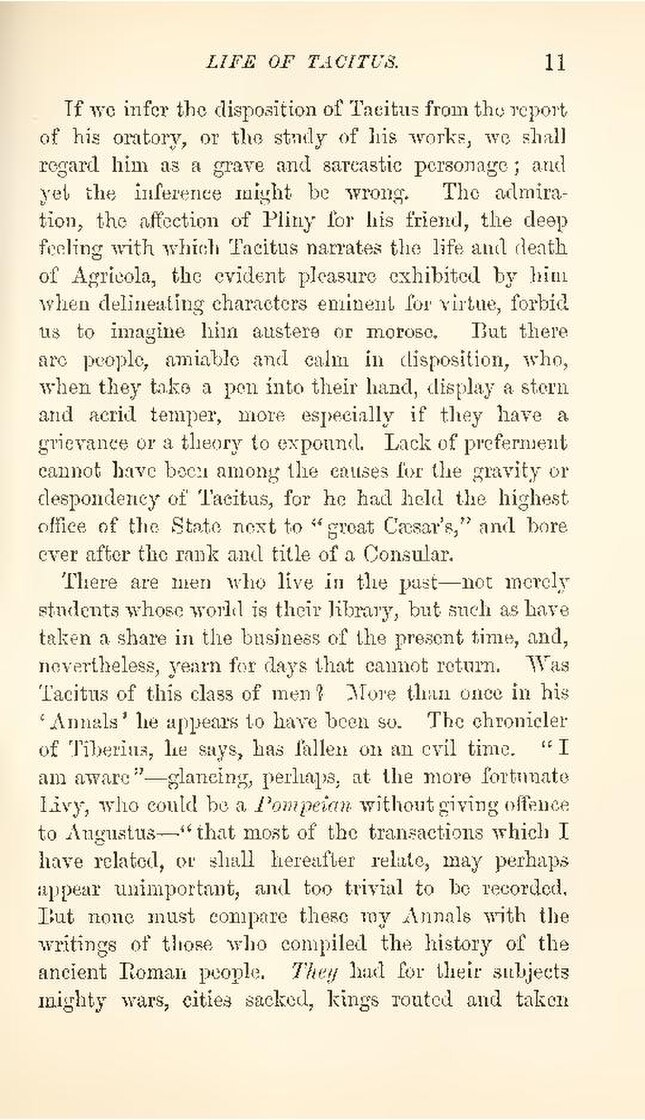If we infer the disposition of Tacitus from the report of his oratory, or the study of his works, we shall regard him as a grave and sarcastic personage; and yet the inference might be wrong. The admiration, the affection of Pliny for his friend, the deep feeling with which Tacitus narrates the life and death of Agricola, the evident pleasure exhibited by him when delineating characters eminent for virtue, forbid us to imagine him austere or morose. But there are people, amiable and calm in disposition, who, when they take a pen into their hand, display a stern and acrid temper, more especially if they have a grievance or a theory to expound. Lack of preferment cannot have been among the causes for the gravity or despondency of Tacitus, for he had held the highest office of the State next to "great Cæsar's," and bore ever after the rank and title of a Consular.
There are men who live in the past—not merely students whose world is their library, but such as have taken a share in the business of the present time, and, nevertheless, yearn for days that cannot return. Was Tacitus of this class of men? More than once in his 'Annals' he appears to have been so. The chronicler of Tiberius, he says, has fallen on an evil time. "I am aware"—glancing, perhaps, at the more fortunate Livy, who could be a Pompeian without giving offence to Augustus—"that most of the transactions which I have related, or shall hereafter relate, may perhaps appear unimportant, and too trivial to be recorded. But none must compare these my Annals with the writings of those who compiled the history of the ancient Roman people. They had for their subjects mighty wars, cities sacked, kings routed and taken
